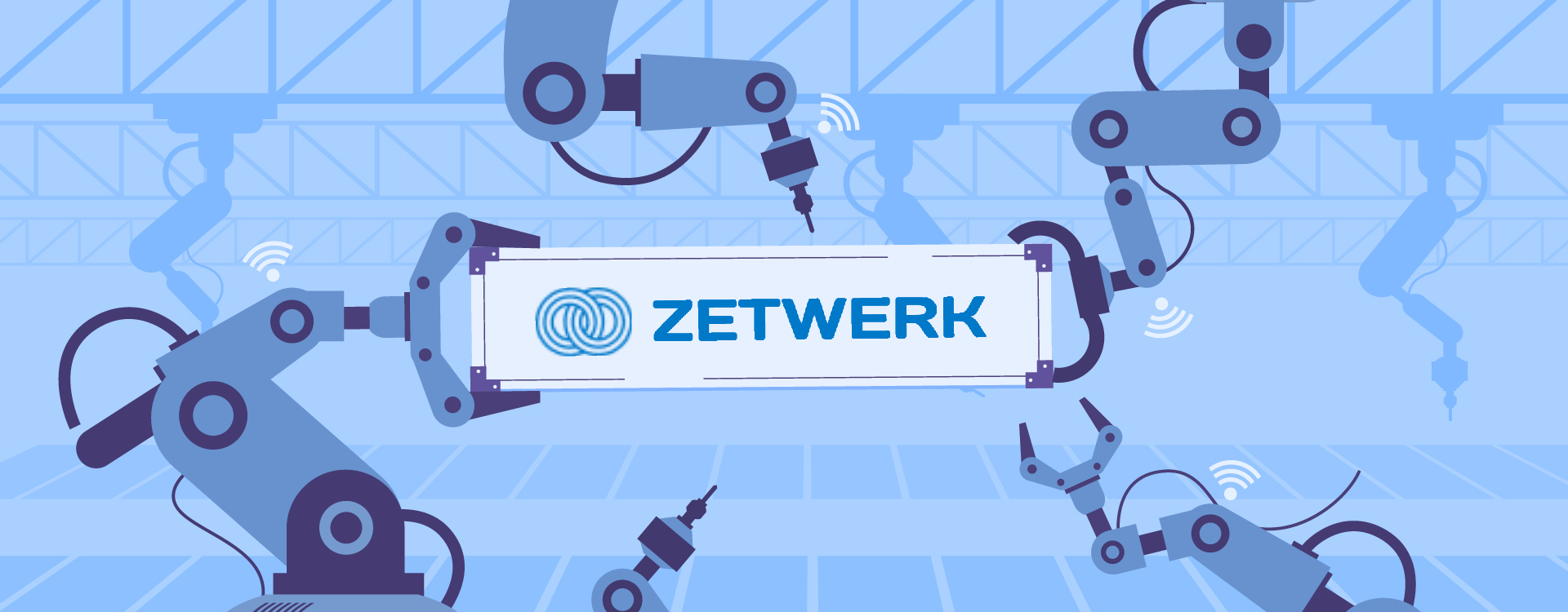Amrit Acharya, one of the founders of Zetwerk, during his stint with ITC, was shouldered with the task of building a factory that required him to deal with 100-200 suppliers at different times. Amrit’s task to handle multiple suppliers turned out to be a daunting one with excel sheets.
It was the eureka moment when he realised that there was no software available to automate and organise a list of suppliers to provide a consolidated view and aggregate the database. So, a problem seeded the birth of Zetwerk.
How Does Zetwerk Connect Global Companies with Manufacturers?
Zetwerk is a Bangalore-based startup founded in 2018 by four friends – Amrit Acharya, Srinath Ramakkrushnan, Rahul Sharma, and Vishal Chaudhary – from IIT Madras. Armoured with experience of working in supply and demand verticals, startups and family businesses, these four friends decided to create software that could help organise supplier databases for large manufacturers.
Zetwerk, through its platform, fulfills the machinery and tools requirement of EPC (engineering procurement construction) and OEM (original equipment manufacturers) customers with small and medium-sized manufacturing enterprises. Its software is used by global engineering companies to discover a pool of niche manufacturers.
To make them discoverable, it indexes these small and medium-sized manufacturers to understand the products they have built before. This aids the bigger EPCs and OEMs to discover them and place orders. From the manufacturers’ side, Zetwerk’s software acts as a price bidding engine where the input is an AutoCAD file which is made available to the network of machine parts manufacturers who can then estimate the price.
Once a company has placed an order, Zetwerk provides it with real-time tracking to monitor the progress right from manufacturing to its delivery. Based on the requirement and specifications, it sells custom-made products to serve customers belonging to verticals of fabrication, machining, casting and forging. There are no ready stocks of products available. Machine parts such as cranes, doors, chassis of different machines and ladders are manufactured by connecting with manufacturers and workshops.
‘‘
Zetwerk, through its platform, fulfills the machinery and tools requirement of EPC and OEM customers with small and medium-sized manufacturing enterprises.
Trends in Supply Chain
Demand for Automobiles in Asia
Rising incomes and rapid urbanisation are increasing vehicle demand in Asian countries. The booming demand for automobiles in Asia will catalyse the demand for more automobile parts and machinery to serve the markets which will increase the demand on the supply chain.
Tech enablement
The pandemic has disrupted the supply chains that have caused delays from the suppliers’ side for OEMs. To insulate from losses, OPCs and OEMs, through advanced supply chain automation, can discern repetitive patterns in supplier behaviour through tracking of key performance indicators like cost, quality and on-time delivery which will enable them to work with a better sense of anticipation.
Localisation
Major India’s domestic and foreign OEMs across vehicle segments are manufacturing automobiles with the spare parts and tools that are made in India. Top-selling models in vehicle segments such as hatchbacks, SUVs, premium sedans, commercial vehicles – have achieved 85 percent or higher localization.
Localisation is burgeoning in two-wheelers verticals where companies are developing bikes that are 100 percent indigenous. Tractors are also manufactured with nearly 100 percent localization.
What Other Supply Chain Startups can Learn from Zetwerk?
Within a short span of 3 years, Zetwerk began receiving monthly orders worth Rs 10 crores. Here’s what startups can learn:
Know your Army Well
Supply chain startups, before onboarding suppliers, should collect adequate data points. Zetwerk collected 200-250 data points based on parameters like capacity, machinery, capability, quality, experience and vintage.
The data collection of suppliers proved beneficial as now they knew the type of B2B companies to attract whether belonging to heavy machinery or automotive vertical.
Delegate the large orders
Zetwerk soon faced a hurdle where suppliers were unable to fulfill orders on time, due to issues arising in capacity/capability, finance, or logistics.
To avoid such mishaps, Zetwerk decided to adopt parallel manufacturing when it received a large order. The large order is delegated to multiple suppliers on the platforms by which they could achieve speed in manufacturing and fulfill orders on time.




